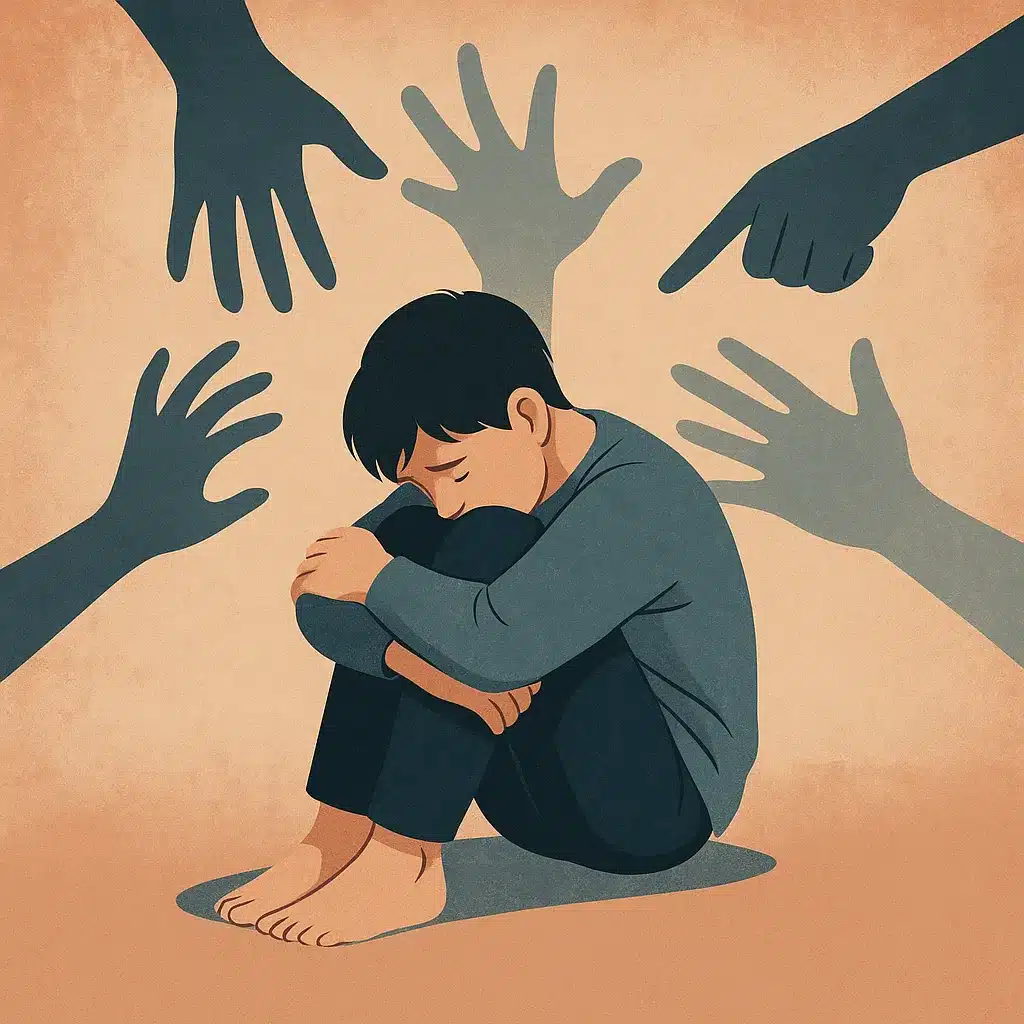
Approx. read time: 3.6 min.
Post: Coping with Childhood Trauma: 10 Proven Strategies for Healing and Growth
Coping with childhood trauma can cast a long shadow. Whether you experienced abuse, neglect, loss, or chronic stress, the emotional wounds often follow you into adulthood. But healing is possible. In this guide, we break down how to cope with childhood trauma effectively, using therapeutic strategies and practical steps that support real, lasting change.
What Is Childhood Trauma?
Childhood trauma refers to emotionally painful or distressing experiences that occur before the age of 18. These events overwhelm a child’s ability to cope and can disrupt development, relationships, and mental health.
Common Types of Childhood Trauma
- Physical Abuse
- Emotional Abuse or Neglect
- Sexual Abuse
- Witnessing Domestic Violence
- Parental Substance Abuse or Mental Illness
- Loss of a Parent (divorce, death, abandonment)
- Bullying or Peer Rejection
- Living in Unsafe or War-Torn Environments
How Childhood Trauma Affects Adults-Coping with childhood trauma
Unresolved trauma can resurface in many ways:
- Anxiety, depression, or chronic stress
- Relationship difficulties
- Trust issues and attachment problems
- Addictive behaviors or self-sabotage
- Emotional numbness or hyper-reactivity
10 Proven Strategies to Cope with Childhood Trauma
1. Acknowledge the Trauma
Healing starts with honesty. Admit to yourself that what happened was real and that it hurt. This isn’t about blaming—it’s about facing reality so you can move forward.
2. Seek Professional Therapy
Work with a licensed therapist who specializes in trauma. Common therapeutic approaches include:
- Cognitive Behavioral Therapy (CBT)
- EMDR (Eye Movement Desensitization and Reprocessing)
- Somatic Experiencing
- Trauma-Informed Therapy
Tip: Online platforms like BetterHelp and Talkspace offer accessible options for therapy.
3. Understand Your Triggers
Trauma lives in the nervous system. Learn what sets you off—a tone of voice, a smell, rejection. Journaling and mindfulness can help you recognize patterns and respond with intention instead of reaction.
4. Practice Self-Compassion
Let go of self-blame. You were a child and didn’t have control over what happened. Speak to yourself the way you would to a friend who went through the same experience.
5. Set Healthy Boundaries
If someone was part of your trauma, you have the right to limit or cut off contact. Boundaries protect your mental and emotional health.
6. Reconnect with Your Body
Trauma disconnects you from your physical self. Try:
- Yoga
- Breathwork
- Walking in nature
- Dance or movement therapy
7. Build Supportive Relationships
Surround yourself with people who respect and support your healing. Join trauma support groups or online communities that validate your experience.
8. Reparent Yourself
Give yourself what you didn’t get as a child: comfort, encouragement, structure. Daily affirmations, routines, and treating yourself with care help rebuild emotional safety.
9. Use Creative Outlets
Art, music, journaling, or storytelling can help you process feelings that words can’t capture. Expression is a powerful part of healing.
10. Stay Patient and Committed
Healing isn’t linear. Some days will feel like setbacks. Keep showing up for yourself. Your progress counts, even when it’s slow.
Frequently Asked Questions (FAQ)-Coping with childhood trauma
How long does it take to heal from childhood trauma?
Healing is different for everyone. It can take months or years, depending on the depth of the trauma, your support system, and your commitment to recovery.
Can childhood trauma be completely healed?
While the past can’t be erased, you can heal its emotional impact. Many people go on to live full, joyful, connected lives.
What are signs that I haven’t healed from childhood trauma?
- Overreacting to minor stressors
- Trouble trusting others
- Chronic shame or guilt
- Numbing with food, substances, or work
Do I need therapy to heal?
Therapy isn’t mandatory, but it’s highly effective. If therapy isn’t an option, self-help books, peer support, and online tools can still help you make progress.
Internal Resources:
External Resources:
- The Body Keeps the Score by Bessel van der Kolk
- SAMHSA – Substance Abuse and Mental Health Services Administration
- BetterHelp Online Therapy
Final Thoughts-Coping with childhood trauma
Coping with childhood trauma takes courage and consistency. You are not broken, and you are not alone. With the right tools, support, and mindset, you can reclaim your life, your identity, and your peace.
Related Videos:
Related Posts:
AI in Diabetes Treatment and Prevention
10 Revolutionary Breakthroughs Powering a Transformation in Cancer Care
Rising from the Ashes: Why I Chose to Rebuild Myself Through Advocacy
Fasting and Aging: How to Use Fasting to Boost Longevity
Resistant Starch: The Carb That Acts Like a Superpower for Your Gut and Metabolism










